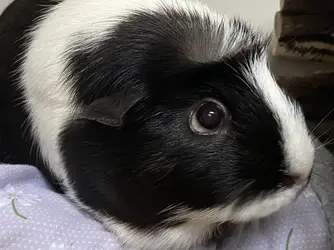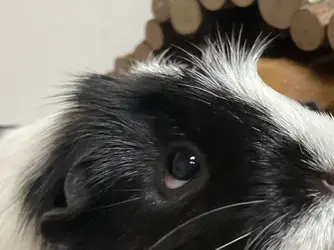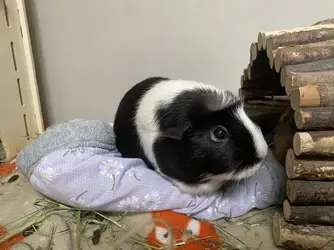Hi and welcome
I looks like fatty eye to me, which has nothing to with overweight; just with a genetic disposition. It is simply the lower lid losing its tightness and falling away from the eye. The 'fatty' bit is just normal healthy conjunctiva; the name for this condition can be unfortunately misleading. It's nothing you can do about and it is harmless. it doesn't impact on longevity with a number of oldies of mine living to a very good age with this condition.
If you worry about overweight, please check your piggies around the ribcage for their 'heft' or BMI. If you can just feel the ribs, your piggies are a healthy weight; if you cannot feel the ribs, then they are overweight and if you can feel every single rib, they are underweight.
This hands-on check is important because the once weekly life-long weigh-in on your kitchen scales can only show you weight changes; crucially, what it doesn't tell you is whether the weight is in the right ball park for your individual piggies in the first place. 'Average weight' is an arbritrary human concept that includes only about 50% of all piggies. This does
not mean that the other half are not normal or healthy, they are just smaller or larger. An overweight smaller piggy can easily check out as overweight, for instance. A non-standard body size/naturaly weight range doesn't impact on how long your piggies will live; overweight however can shorten a life span.

For more important information about weight checks/life long health monitoring, checking for the BMI and how weight changes naturally over a life time, you will find our weight guide helpful:
Weight - Monitoring and Management


